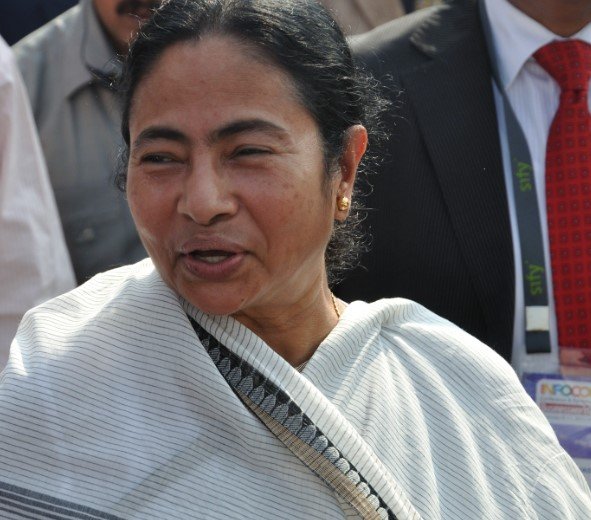West Bengal Chief Minister Mamata Banerjee spoke out about the ongoing unrest in the state, emphasizing that while people have the right to protest, taking the law into one’s hands is unacceptable. Her comments come amidst violent clashes in various parts of the state, sparked by protests against the Waqf (Amendment) Act.
Banerjee’s remarks, made during the inauguration of the Kalighat Skywalk in Kolkata, aimed to temper the growing tensions and call for peaceful demonstrations. She specifically addressed the violence in districts like Murshidabad and South 24 Parganas, urging citizens to keep their protests lawful.
The Need for Peaceful Demonstrations
Mamata Banerjee made it clear that while protests are a constitutional right, they must be carried out peacefully and within the framework of the law. “Everybody has the democratic right to stage a peaceful protest with permission,” she said, urging citizens to refrain from any unlawful activities.
Her statement came in the wake of violent incidents that unfolded over the weekend in various districts. In Dhulian, Murshidabad, protests against the Waqf (Amendment) Act led to clashes, leaving several injured and three dead. These incidents, coupled with ongoing unrest in other regions, have raised concerns about the state’s security and stability.

Banerjee urged the public to stay calm and not be swayed by provocations. She specifically called on people not to engage in activities that could undermine the peace, particularly when such actions are masked as religious.
Rising Violence: A Closer Look
The violence that broke out in Murshidabad and Bhangar highlights the volatile situation in the state. Supporters of the opposition Indian Secular Front clashed with police in South 24 Parganas, leading to multiple injuries and the burning of police vehicles. These incidents have added fuel to the fire, leaving many residents in fear for their safety and uncertain about their future.
Local shops were vandalized, homes were damaged, and the community was left reeling from the aftermath. The government’s response has been to tighten security measures, but the violence has raised broader questions about law enforcement and the ability to maintain order in the state.
In her speech, Banerjee urged citizens to remember Bengal’s long history of peace and harmony. “The land of Bengal is the land of peace. Its soil is as pure as gold,” she said, appealing to the people’s sense of unity.
Political and Social Divides
Banerjee also took the opportunity to address the political narrative surrounding her leadership. She pointed out that some critics have not only attacked her for attending interfaith events but have even resorted to changing her surname as a form of political protest. Such tactics, according to Banerjee, are part of a larger, divisive political agenda.
Her visit to various religious programs, often involving Muslim, Hindu, and Christian communities, has been a point of contention. Critics argue that she is trying to cater to different religious groups for political gain. Banerjee, however, insists that her actions are aimed at promoting communal harmony, not division.
“Some people criticise me for attending various religious programs, but I believe in fostering peace,” she remarked. Her ability to engage with different communities has made her both a target and a champion in the eyes of many.
What’s Next for West Bengal?
As violence continues to simmer in the state, Banerjee’s leadership will be tested. Will she be able to quell the unrest and restore peace? Or will the protests continue to escalate, further destabilizing the region?
Banerjee’s emphasis on peaceful protest and law and order stands in stark contrast to the tactics employed by some opposition factions, who continue to clash with the police. In the coming days, it will be critical to see how the government responds to the growing unrest and whether her calls for peace can be heeded by a divided state.
